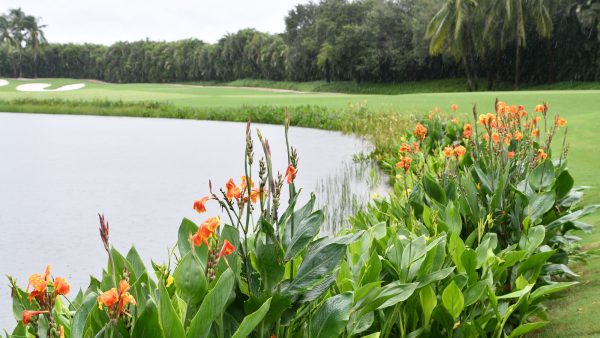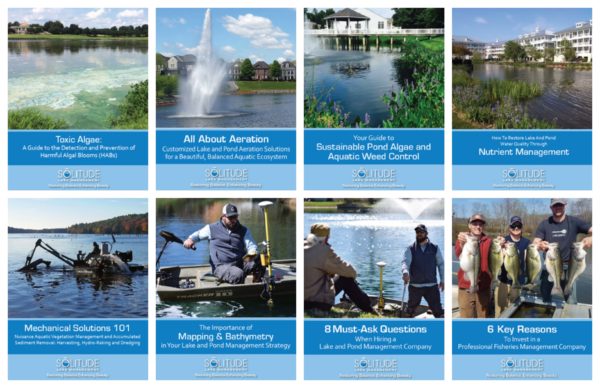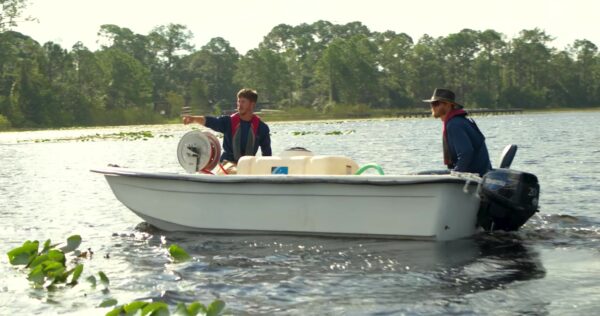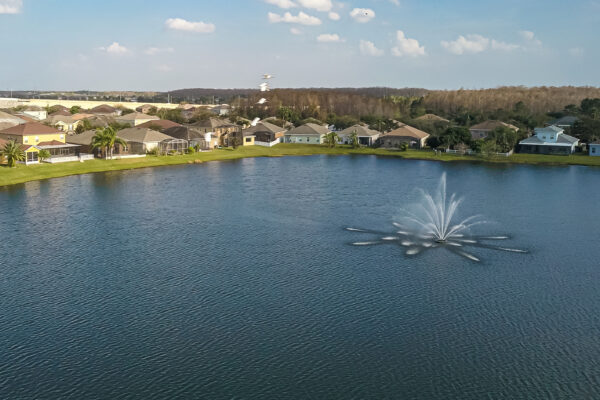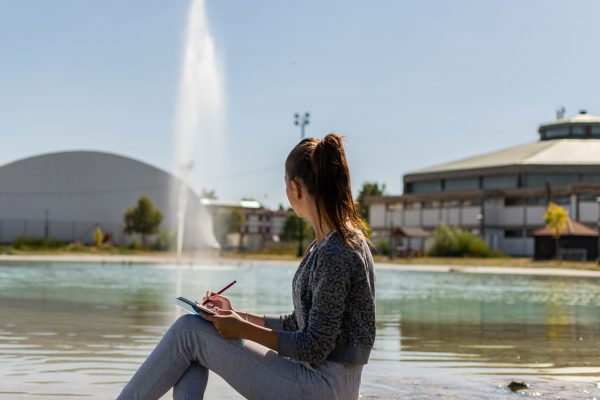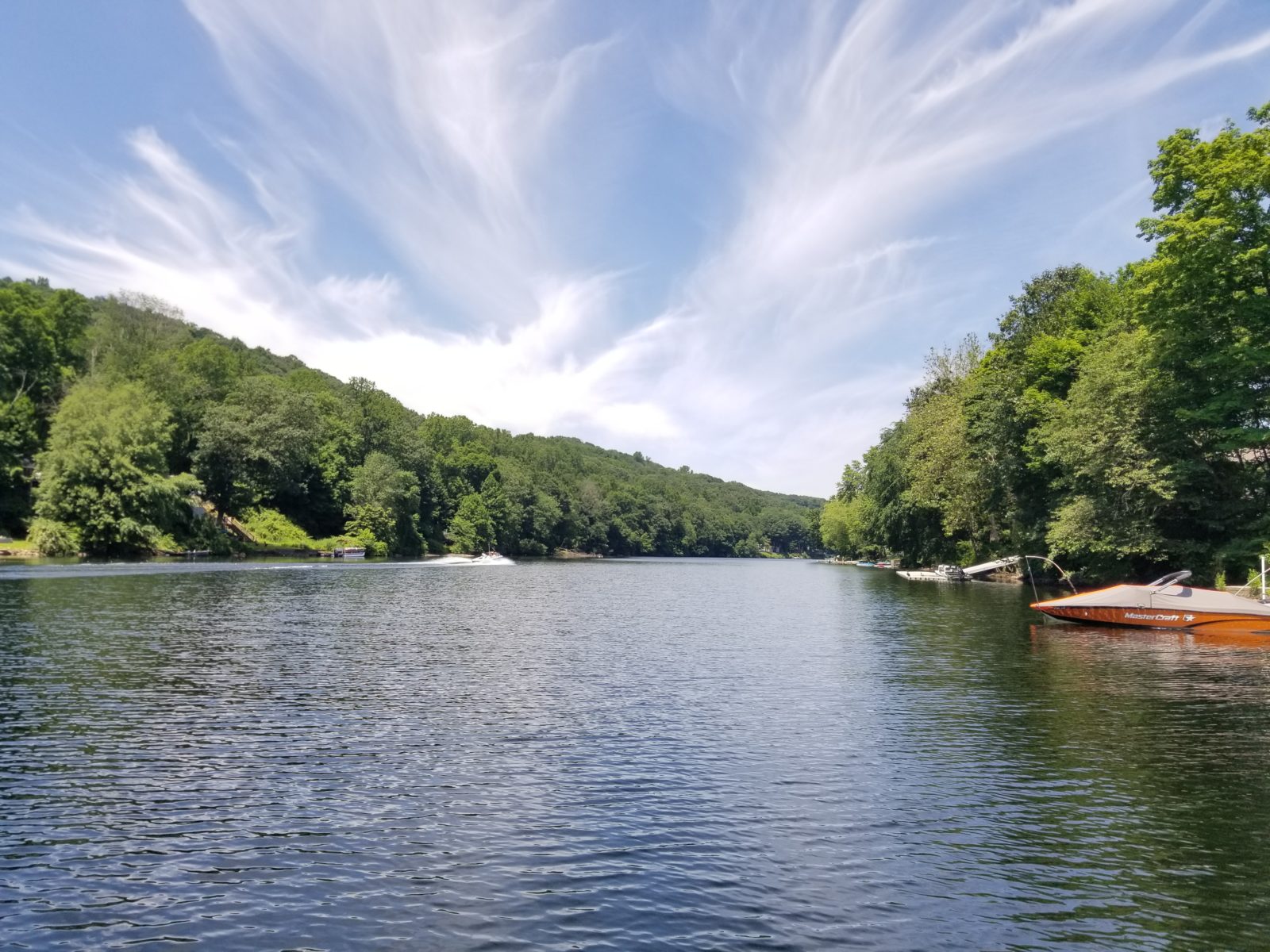Combating Invasive Species While Protecting Native Plants Downstream
October 12th, 2017
Written by Industry Expert Amanda Mahaney, Aquatic Biologist
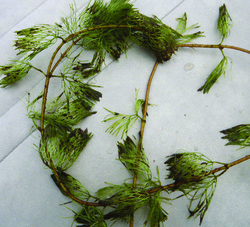 Agawam Mill Pond, located in Wareham, Massachusetts, is a 150-acre waterbody owned by the Commonwealth of Massachusetts and is managed by the MA Division of Fish and Wildlife (MA DFG). It is used heavily for recreational activities, such as boating, fishing and swimming, and supports moderate residential development. The pond has an average depth of six to eight feet with a maximum depth of twelve feet; therefore, emergent and submerged aquatic vegetation has the capability to flourish, rapidly expanding into dense colonies. Currently, the invasive, non-indigenous submersed vegetation (fanwort and variable watermilfoil) has inundated the pond causing a decline in water quality and has severely limited recreational activities for residents and guests.
Agawam Mill Pond, located in Wareham, Massachusetts, is a 150-acre waterbody owned by the Commonwealth of Massachusetts and is managed by the MA Division of Fish and Wildlife (MA DFG). It is used heavily for recreational activities, such as boating, fishing and swimming, and supports moderate residential development. The pond has an average depth of six to eight feet with a maximum depth of twelve feet; therefore, emergent and submerged aquatic vegetation has the capability to flourish, rapidly expanding into dense colonies. Currently, the invasive, non-indigenous submersed vegetation (fanwort and variable watermilfoil) has inundated the pond causing a decline in water quality and has severely limited recreational activities for residents and guests.
A multi-year, three-phase, aquatic plant management program was initiated in 2016. The first phase of the program involved the successful treatment of a 20-acre area located at the northeastern end of the waterbody. Recently, we completed Phase II of the Agawam Mill Pond restoration project. Phase II involved treating a 37-acre segment of the densest thicket of invasive species growth, which is the largest treatment area of the three phases. This aquatic plant management program is particularly significant because Agawam Mill Pond is located upstream from four rare and endangered aquatic vegetative species. The species of concern include one grass (salt reed grass) and three herbaceous plants.
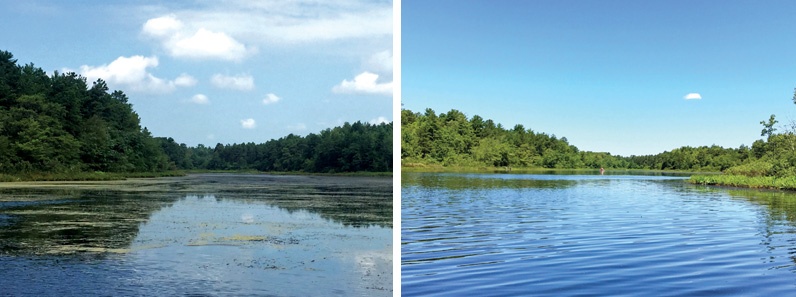
It was uncertain whether the herbicide used in this management program could potentially cause harm to the four state-listed, protected plant species. Because of this uncertainty, lengthy permitting processes were carried through by both state and private participants. Accordingly, the herbicide treatment plan was structured specifically to lessen impacts to the non-target plants while accomplishing desired control of fanwort
An extensive water quality monitoring plan and herbicide residue regime, followed by a post-treatment aquatic vegetation survey, was agreed upon by those involved to further alleviate concern of all possible ill effects of the herbicide on the protected plants. Monitoring of Agawam Mill Pond began on the day of treatment and continued through the next few weeks where specified observations were recorded from six pre-marked sampling stations.
Initial results of Phase II of the management program were extremely positive. Fanwort, as the primary invasive species specifically targeted, fell from the water column within forty-eight hours post-treatment. Although not directly targeted, variable watermilfoil was also heavily damaged within the treatment area. It was immediately apparent that visitors were finally able to enjoy the pond again.
Observations and testing results concluded Phase II as an overall success, opening swimming areas, fishing accesses and boating lanes, all the while conserving the rare and endangered species. But, as predicted, variable watermilfoil began to display signs of regrowth two weeks after treatment. As this phased management program concludes, ongoing annual management will likely be refocused on reducing regrowth and overall density of non-indigenous vegetation in Agawam Mill Pond.
Contact the experts at 888-480-5253 for all of your lake, pond, wetland and fisheries management needs.
 Amanda Mahaney is an Aquatic Biologist who helps clients develop and achieve environmentally sustainable goals for their aquatic ecosystems. She has a special interest in GIS data collection and map preparation, and enjoys educating the public about the importance of land preservation.
Amanda Mahaney is an Aquatic Biologist who helps clients develop and achieve environmentally sustainable goals for their aquatic ecosystems. She has a special interest in GIS data collection and map preparation, and enjoys educating the public about the importance of land preservation.
SOLitude Lake Management is committed to providing full service lake and pond management solutions that improve water quality, preserve natural resources, and reduce our environmental footprint. Our services include lake, pond and fisheries management programs, algae and aquatic weed control, mechanical harvesting, hydro-raking, installation and maintenance of fountains and aeration systems, water quality testing and restoration, bathymetry, lake vegetation studies, biological assessments, habitat assessments, invasive species management and nuisance wildlife management. Services, consulting and aquatic products are available to clients nationwide, including homeowners associations, multi-family and apartment communities, golf courses, commercial developments, ranches, private landowners, reservoirs, recreational and public lakes, municipalities, parks, and state and federal agencies. Learn more about SOLitude Lake Management and purchase products at www.solitudelakemanagement.com.

